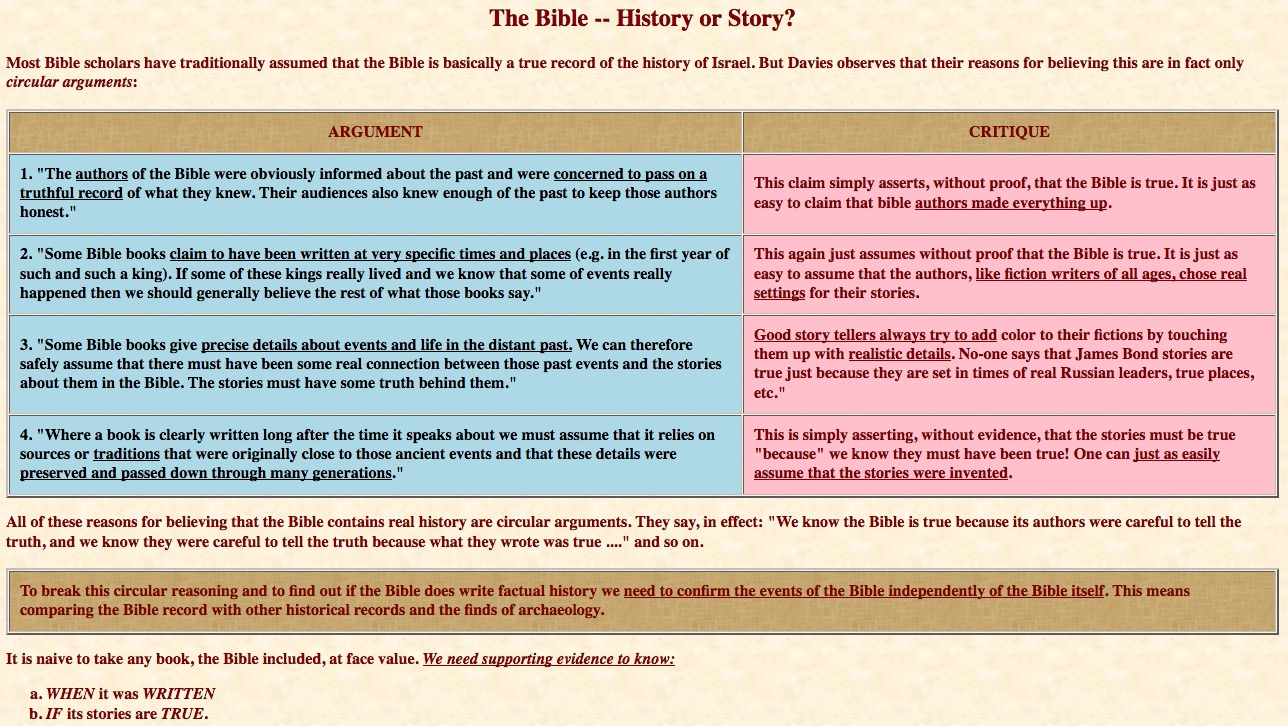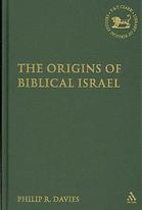I have just been reminded (thank you David Fitzgerald) that Philip R. Davies also was one of the very few mainstream scholars to actually publish the view that the Jesus myth theory ought at least to be taken seriously. Davies himself did not subscribe to it but he did acknowledge its reasonableness.
See his article Did Jesus Exist? published on Bible and Interpretation in 2012. Some quotes (my bolding):
I … have often thought how a ‘minimalist’ approach might transfer to the New Testament, and in particular the ‘historical Jesus’, who keeps appearing to New Testament scholars in different guises.
So have I. I regret not ever having the opportunity to discuss the question with Philip Davies personally. In fact my own views on the question of Jesus’ historicity are grounded in the the “minimalist” approach that I first learned through In Search of Ancient Israel (see previous post).
I don’t think, however, that in another 20 years there will be a consensus that Jesus did not exist, or even possibly didn’t exist, but a recognition that his existence is not entirely certain would nudge Jesus scholarship towards academic respectability. In the first place, what does it mean to affirm that ‘Jesus existed’, anyway, when so many different Jesuses are displayed for us by the ancient sources and modern NT scholars? Logically, some of these Jesuses cannot have existed. So in asserting historicity, it is necessary to define which ones (rabbi, prophet, sage, shaman, revolutionary leader, etc.) are being affirmed—and thus which ones deemed unhistorical. In fact, as things stand, what is being affirmed as the Jesus of history is a cipher, not a rounded personality (the same is true of the King David of the Hebrew Bible, as a number of recent ‘biographies’ show).









